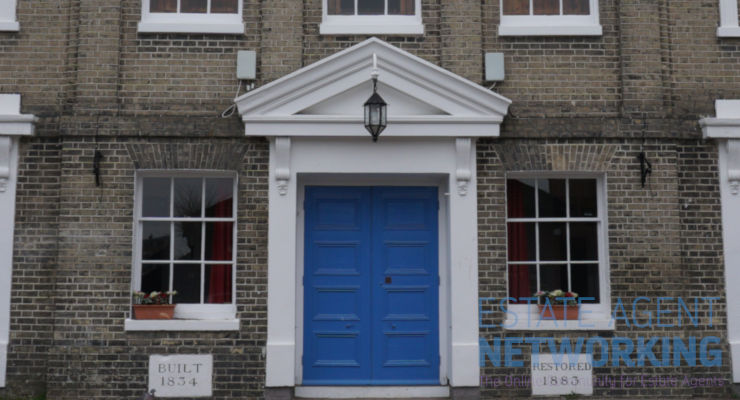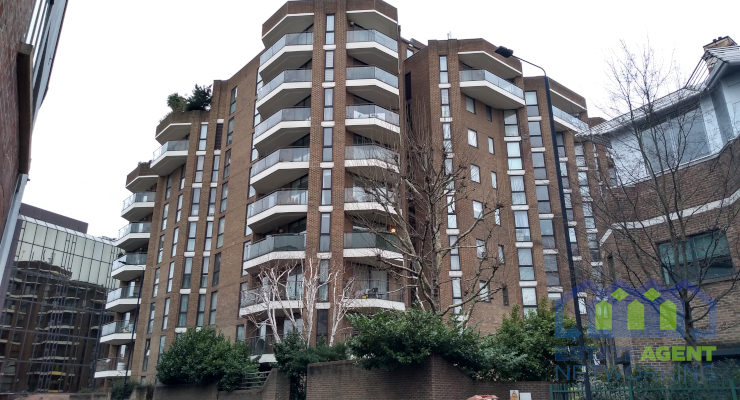How Vacant Property Protection Keeps Your Assets Secure
Property is likely to be the largest asset a person or company owns. Deciding to leave it vacant shouldn’t be taken lightly and you will arguably need to protect the investment better when empty than when it is occupied.
With little to no presence on the scene, vacant properties are vulnerable to attack, damage and people deciding to move themselves in. Empty properties are everywhere and in 2020, there were over 600,000 vacant homes in England alone while in 2021 it was found that one in seven UK shops were vacated.
The reason a property is left vacant may be due to economics, renovations, business strategies or a homeowner may just spend large chunks of time away. Regardless of the reason for a vacant property, one thing is for sure; they must be protected to keep assets secure. Let’s look at the biggest threats to vacant properties and which methods are best for keeping them safe.
What are the main threats to vacant property?
Whether you are leaving a home vacant or a larger property like flats, offices or warehouses, there are several main threats to protect against. They are fire, theft, squatters and vandalism.
Fire
Fire is devastating to property but in one that is lying vacant, it can be so much worse without adequate security measures in place. Occupied properties are likely to have someone on-hand who can snuff out a fire quickly or alert the fire brigade to come and rescue the situation.
Vacant properties can experience high levels of fires through outside influences or a build-up of combustible materials. As no one is in, these fires can go unnoticed for too long and cause catastrophic damage.
Installing alarms and fire alert systems for accidental fires as well as making regular visits to the property can reduce the risks of damage to your property. Despite these measures, prevention is typically better than cure.
“It is important to remove all possible combustible materials from the site to reduce the risk of intruders or trespassers setting debris alight out of boredom or spite”, security experts, Maltaward, suggest. They add, “Turn off all the utilities including electricity and water and ensure that they remain off by installing security measures or padlocks.”
Theft
Leaving a property vacant doesn’t mean there isn’t anything worth stealing. Besides things like furniture and equipment, there is plenty of metal piping and wiring that some thieves wouldn’t think twice about breaking into an unprotected building to steal.
Even with the sale of scrap metal tightened to stop it from being stolen, it remains valuable to the right people. Security measures like cameras and perimeter fencing act as a major deterrent to would-be thieves.
Speaking to TechRadar about home burglars, security consultant Luke Harris said: “In a burglar’s mind, when they are scoping out a property, they want to be in and out as quickly as they can, with as little chance of getting caught as possible”. “This means that any visual or physical deterrent – whether it be outdoor lighting, a security camera, or a visible alarm – can put them off,” he adds.
Squatters
For a variety of reasons, such as the housing crisis and homelessness, squatting in vacant properties remains something to consider for building owners. Squatters may not only seek out a vacant building but find themselves settling on land that appears to be disused and derelict.
Having someone move onto your property uninvited can be stressful as you want them to leave but it’s not always as simple as asking them to go. You can use bailiffs to try and evict people and the police can move trespassers on but if they are squatting it becomes more difficult. Squatters may damage the property they are residing in or inadvertently cause additional fire and safety risks.
The best way to keep your vacant property safe from squatters is to board up windows and doors using steel screens by security companies. These screens are purpose-built to prevent unwanted access to a property and require specialist equipment to break through. Couple access-blocking screens with security fencing and concrete barriers and you’ve almost got an impenetrable fortress.
Vandalism
Putting resources into a vacant asset might feel like a waste of money but unfortunately, we can’t always have nice things without people trying to destroy or take them away. Vandalism is a problem that isn’t unique to vacant properties but those without any security measures are more vulnerable.
From spraying graffiti and smashing windows to major structural vandalism like arson, the more damage your property takes the more it will cost to repair. Or, the more its value will drop if you look to sell without fixing the damage vandals create. Preventing vandalism through the effective use of security cameras and intruder alarms mitigates the risk.
Property protection techniques
The level of vacant properties is falling in some instances. For instance, by the second quarter of 2021, 5% of UK warehouses were left vacant. This is an improvement from 2010 when 15% were empty but it’s still a significant number of investments that need protection from outside threats.
It’s important when protecting vacant properties that the right techniques are employed depending on the threats. Boarding up windows and doors is ideal for isolated properties or large buildings that could invite squatters. The outlay of adding steel barricades to doors can outweigh the repair costs following squatters or vandals gaining entry.
Intruder alert systems and surveillance cameras are great deterrents for most antisocial behaviours; they make thieves and burglars think twice and will inform you of any unexpected activity.
Specialist insurance may be necessary if the property is going to lay vacant for an extended period. Check with the insurance provider to see where the building you are looking to protect stands; a new policy may have to be taken out.
Secure the perimeter
Why invite trespassers into a vacant property at all? Installing security measures like concrete barriers prevent vehicular access and make it incredibly difficult for any specialist cutting tools to get close.
Perimeter fencing doubles down on the protective shell and is perfect for a temporary solution, like when renovations are being done. Adding security warning signs reduces the likelihood of damage being inflicted by unwanted visitors and it’s the quickest and easiest form of defence.
Simple measures that anyone can do
When a property first becomes vacant it’s a good idea to change the locks so that anyone who previously had access cannot visit the premises without permission. For security purposes, adding heavy-duty locks to entry points adds a deterrent that will put most would-be intruders off.
Keep existing security systems activated and ensure you or someone on your behalf inspects the property regularly. This not only keeps you in the loop but makes it look like the property is in use, acting as a crime deterrent. Further measures like emptying waste, collecting mail, occasionally turning lights on and landscaping or removing weeds can keep up the appearance that the property is still being used.









